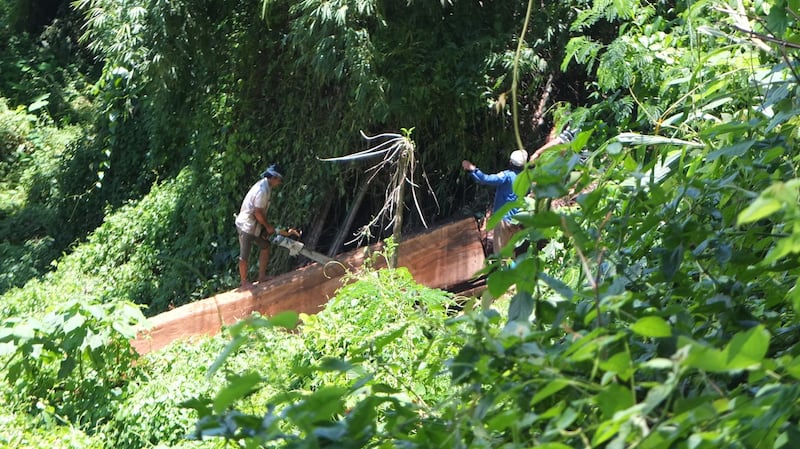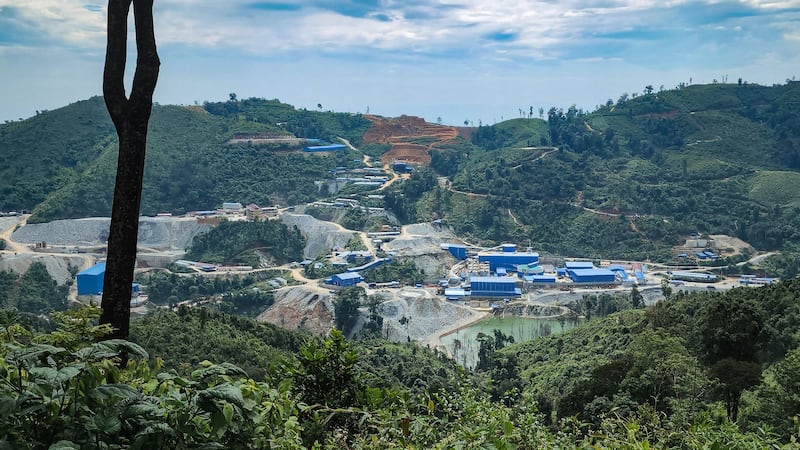Illegal logging, concessions to private developers and agricultural encroachment on forest lands are jeopardizing Laos’s goal of achieving 70% forest cover density by 2035.
That’s according to a recent survey by Laos’s Ministry of Agriculture and Forestry, which pointed to an increase in illegal logging in the country.
From 2001 to 2021, Laos lost nearly 21% of its tree cover, according to Global Forest Watch.

One official from the Ministry of Agriculture and Forestry in Laos’s Xaysomboun province blamed local ethnic minority communities, who they accused of using protected forest lands for agricultural purposes.
“Sometimes [ethnic minority villagers] cut trees to sell to lumber companies as part of their income,” he told RFA.

But another official from the same ministry’s Xayabury office said the decrease in forest density is due to government concessions to foreign development projects around dam construction and mine exploration.
“Preserved forests in the country are destroyed by government concession projects,” he said.
Authorities allocated land to 306 projects that covered over 610,000 hectares across the country between 2013 and 2022, according to Som Phone Keohavong, a forest inspection leader from the Ministry of Agriculture and Forestry. That has resulted in a decrease in forest density in Laos to 68%, or about 14.7 million hectares of forest land, he said.

“Companies are encroaching on forest land a lot – cutting down trees in forests that are legally protected from logging,” one villager in Laos’s Attapeu province told RFA on condition on anonymity, like others in this report. “Cattle that local villagers rely on have no land left for grazing as a result of deforestation.”
He blamed the increase on Lao authorities granting more land contracts to foreign investors, giving them concessions for large plots of lands to be used for industrial farming projects that replace critical forest cover.
Translated by Sidney Khotpanya. Edited by Nawar Nemeh and Matt Reed.
